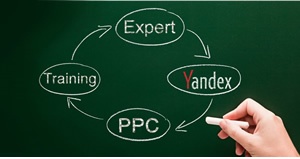 Following my last post concerning the limits of translation as applied to ad campaign keywords, I would now like to go on and examine how problematic translation can be when it comes to ad copy, again with English-to-French translation as focus.
Following my last post concerning the limits of translation as applied to ad campaign keywords, I would now like to go on and examine how problematic translation can be when it comes to ad copy, again with English-to-French translation as focus.
I will here tackle 3 main obstacles to ad copy translation, all somewhat interconnected : length issues, adaptation of calls-to-action, and dynamic keyword insertion.
1 – Length issues
A lot of the difficulties encountered when translating ads from English to French emerge as a result of character limits. Indeed the translation of an English text into a romance language will more often than not end up larger than the original. Not only do words tend to be longer in French than in English, but you can also expect an increase in the number of words used passing from English to French (typically of around 15%), which can be explained by evoking some differences in the ways both languages function.
Lexical gaps are perhaps the most eloquent culprits here. The ideas conveyed in some English idioms will often find their way into French through lengthier expressions. Translated with relative structural fidelity, phrases such as « early-bird prices » or « price match guarantee » might not result in patent nonsense but they would not resonate with a French audience. Getting the exact same meaning through in your ads would involve some amount of paraphrasis, which, coming at the expense of other relevant info and depriving the ad of its momentum, is likely to make the copy less appealing.
But some syntax differences between French and English might be of greater consequence for the character count than occasional idioms. There is arguably a certain elasticity in the way the English language works not equally enjoyed in French, which allows for some space-saving structures.
For instance English nouns can with relative flexibility be used as verbs or adjectives. You can thus form noun strings such as «London hotel weekend offers», whereas the French language requires the use of prepositions to cement it all: « offres d’hôtel pour weekend à Londres ». Similarly, you will often get away with omitting articles in your English ads. « Find hotel today » does not strike as too awkward. However, in most cases French will not grant the same licence ; the article is needed, lest the phrase should read very clumsy : « Trouvez un hôtel aujourd’hui ».
These prepositions and articles are short words but, including the spaces, a two-letter article effectively uses four characters of your limited allowance. Considering their frequency they do make a sensible difference in the character count.
And since we’re talking about small things, let’s mention that extra space before exclamation and interrogation marks which is needed in French (not necessary in Canadian French), accounting for another precious character.
2 – Calls-to-action
The difficulties in translating calls-to-action bear a close connection to character limit. Some calls-to-action are especially hard to fit because of the nature of the verbs they require.
The issue when translating user-engagement call-to-action verbs such as « learn » or « read » is that, as much as you can end your English ads with: « Learn more here » or « read more », French only allows you to use the verbs « apprendre » or « lire » if they are followed by a prepositional clause : « apprenez-en plus sur nos offres » (learn more about our offers) « Lisez-en davantage sur nos produits » (read more about our products).
To use these verbs therefore entails constructing phrases that are notably longer than the source expressions, and somehow dropping the impetus too. The translator may need to resort to non verbal calls-to-action : « plus d’infos ici » (more info here) or give up the imperative : « en savoir plus ici » (to know more here), « à découvrir ici » (to discover here).
Direct response call-to-action verbs such as « buy », « purchase », « get », or « shop » can also lead to some translation obstacles. Some can be accounted by the nature of French verbs. You will not get away easily with literally translating the omnipresent English call-to-action «buy now » for instance. The verb « acheter » needs to be followed by a direct object. For instance « Achetez votre ticket » (buy your ticket).
Other obstacles will be the result of lexical gaps. To mention but one, the verb « shop » is a tricky word to translate in online contexts. The equivalent French expressions only apply when talking of shopping in physical stores. « Faire les magasins » (to hit the shops) implies visiting several shops, while « faire les courses » (do the shopping) refers to your regular supermarket expedition to get milk and washing powder, and will not fit all kinds of businesses.
Another challenge will be to convey the sense of urgency carried by the short words « now » or « today ». It can be harder to prompt to immediate action using the French equivalents « maintenant » and « aujourd’hui », which take up a bit more space. The words « ici » (here) or « vite » (quick) are often used to keep within limits.
3 – Dynamic keyword insertion
Dynamic keywords insertions are hard to adapt in many languages. Translating a phrase at first glance as uncomplicated as « Buy {keyword} now! » is actually not so easy in French, due to the existence of genders and the need for articles before nouns. Thus « Achetez {keyword} maintenant ! » will read clumsy in all cases, whereas « Achetez un {keyword} maintenant ! » will read well with some keywords, but read like a grammar mistake in many other cases, according to whether the keyword happens to be feminine or masculine, singular or plural. To make dynamic keyword insertion work in French will require a neutral construction that allows for a maximum number of cases, something which is not achievable through translation.
In order to make French translations of ads fit the search engine template, a translator will often have to make sacrifices that may not lead to the most convincing copies… Often, creating persuasive ad copy will require you to step away from your English ads, work with native speakers with a solid understanding of PPC, and simply forget about translation.
Fleur Depriester
Latest posts by Fleur Depriester (see all)
- 3 Obstacles To Ad Copy Translation - April 15, 2013
- Limits to ad campaign translation: From useless keywords to missed opportunities - March 21, 2013







Very good article!!!